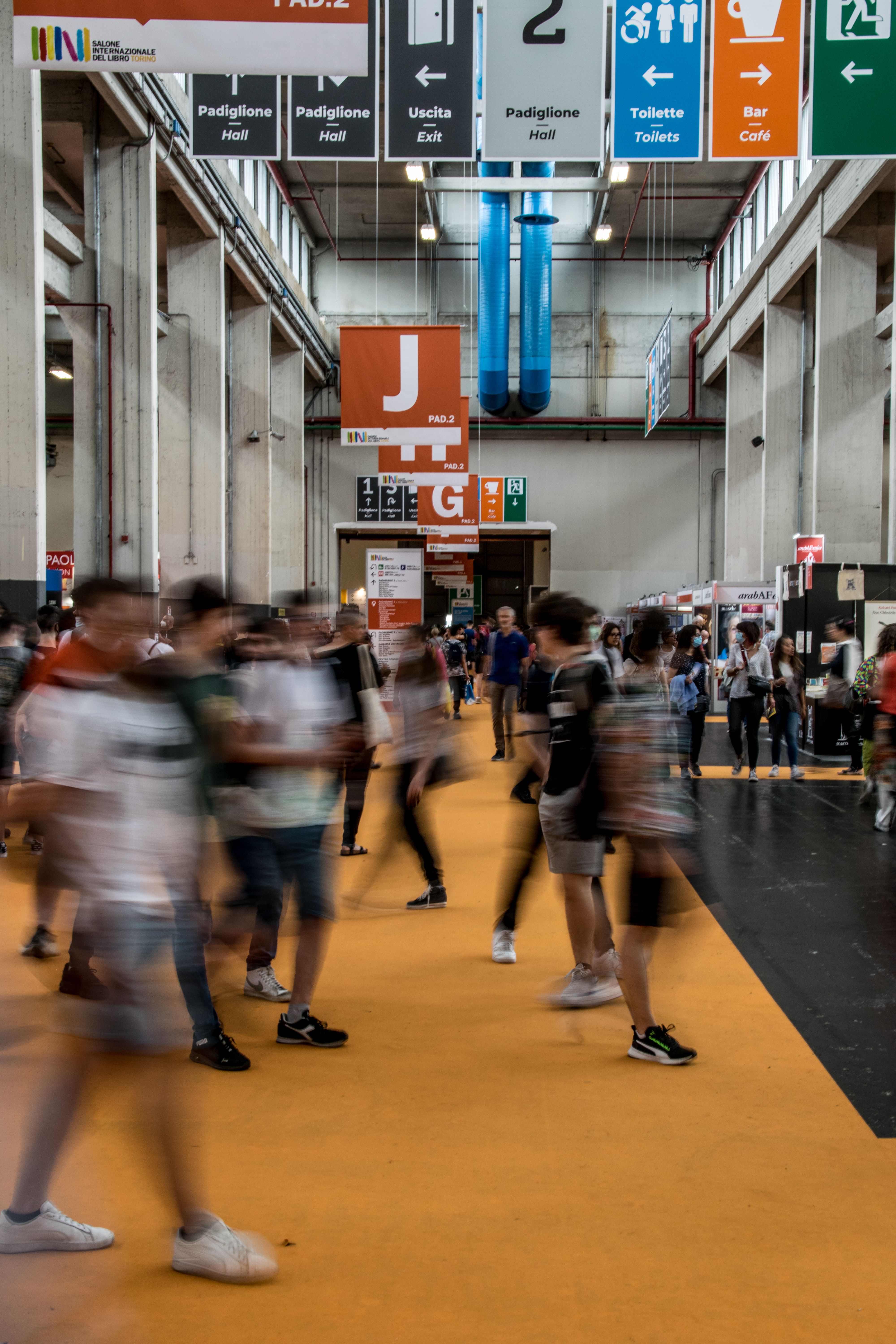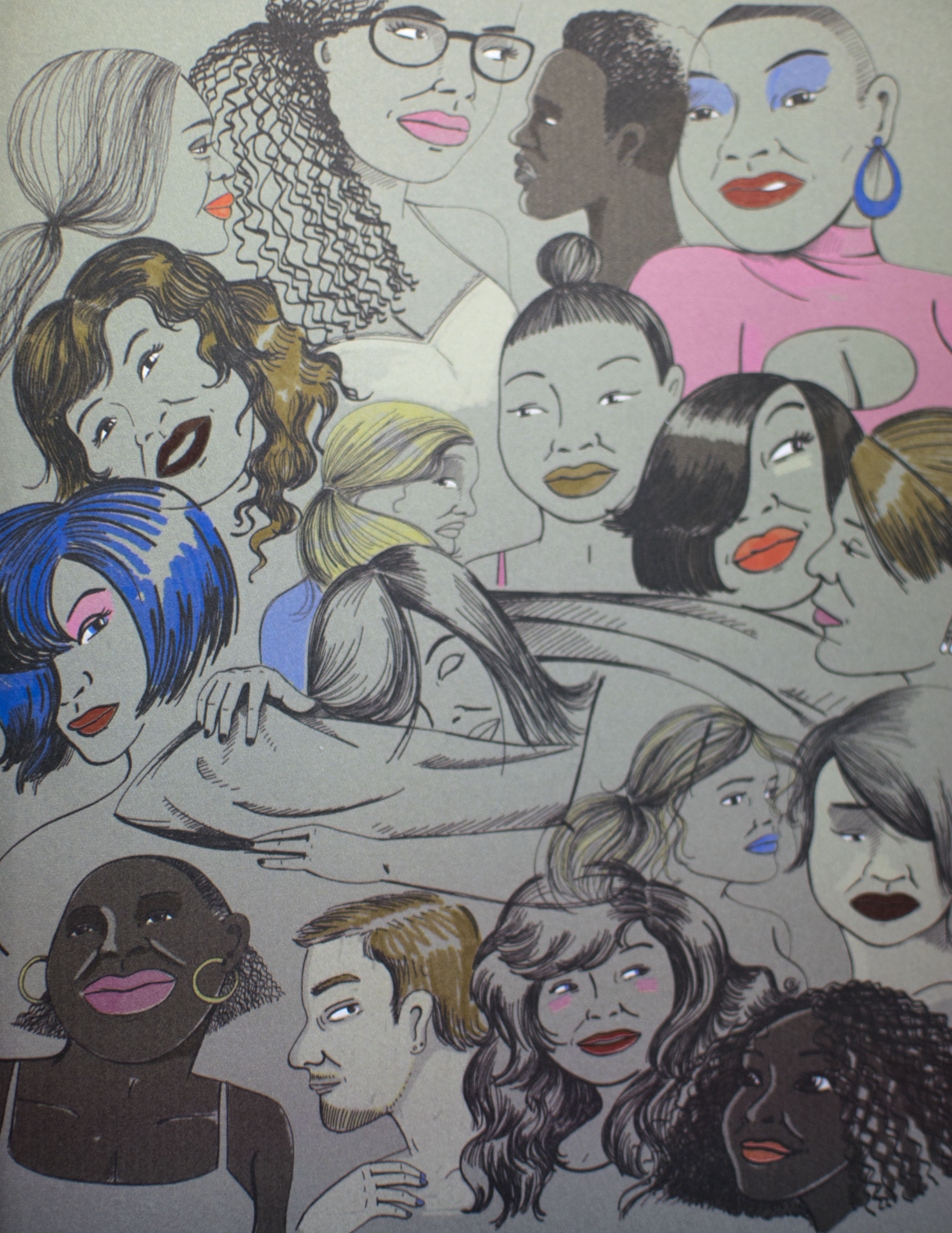So, Laura, first of all, how’s the fair going?
Moderately; I thought better. It is an event that on Saturdays and Sundays is full of people, while in the first days there is much less attendance. There is no shortage of school classes, but given the many workshops are brought quickly between the stands. The meetings and presentations work well, I must say particularly well managed the comics area.

Let’s talk about Comicout. Are you a one-lady-show or behind there is a wider editorial team? How did the project come about and what does it do?
I’m a one-lady-show: Comicout was born as a cultural association ten years ago and from nine public volumes. The goal is to spread the culture of comics at three hundred and sixty degrees, also because the language of comics is still mysterious: these days talking with colleagues, I realized that the public does not know how to make a comic book, if the image or the word is born first.
Visualizza questo post su Instagram
Does this mystery persist because there is still the stigma that a minor art is a subgenre relegated to young people?
This is true, but the mystery of creating a comic book also persists for fans. There’s always wonder like a magician’s trick. I like that the reader really understands what comics are: the manuals that I publish are not sketchbooks, I try to make understand with funny elements what is behind the design phases. The mission of Comicout is above all this: to reveal the mysteries that lie behind the techniques of ballons, cartoons and strips.
I want to give you an example of promoting comic culture. We published Le storie NERE del Corriere dei Piccoli; the reaction of the public before the title of the newspaper is always the same: "I also read the Corriere dei piccoli!". It is not possible since they were published between 1908 and 1930, and not being in front of a centenary, logically it is not that of his time. When I show another strip, this time really from the time of the reader, published in the same magazine but without the logo of the Corriere, this does not believe. There is superficiality, we stop at the title and we rely only on memory: Comicout wants to unhinge these mechanisms also making history of comics, through small and agile essays, accessible to both specialists and curious.
Visualizza questo post su Instagram
So Comicout doesn't look only at the past of the genre but also at the present: I saw that you also propose many foreign contemporary authors. What is the approach with newcomers?
I translate a lot, especially from France. I would like to propose more Italian authors and organize meetings with them, but it is not sustainable. It's a mainly moral problem: it is right that a commissioned comic book is paid properly, to date this is not always possible. I would devalue the author’s work and that would weighs on my heart, so I prefer to translate works already published in magazines.
One last question: news and upcoming releases in Comicout?
Surely I recommend The End (Zep, 2022), an apocalyptic and ecological thriller on environmental issues, which deals in an imaginative and scientific way with some aspects of the current climate change. Another project of which I am very proud, which will be released soon, is Il clud dei disadatt.i.e by Cati Baur. He is a young adult who deals with the issue of no-identification and sexual schematization, without giving too precise a name to his orientation: sometimes those who refuse the definition by labels, automatically end up returning or undergoing this dynamic. Written in a simple way, it is suitable for a very young audience, who has already had the opportunity to appreciate the way we talk about the topic in Hugo è gay (Hugues Barthe, 2021).
Visualizza questo post su Instagram
Among the novelties of the year published by Comicout presented during the SalTo, stands out the comic-investigation Putain de vie! Le strade della prostituzione of Muriel Douru, French author who for more than twenty years holds dear the fight against discrimination of every minority. Thanks to the collaboration with Médecins du Monde France and the association Paloma, she immersed herself in the social abyss of the French cities, giving voice to ten sex workers (nine women and one man) in an unparalleled cartoon reportage.
Visualizza questo post su Instagram
A narration far from any sexy tonality: cold grey bodies, devoid of any erotic charge; no glamourization of the profession. From the strips of the comic, instead, emerges all the suffering of women "immigrants and exploited, victims of human trafficking, who have fled from their countries of origin, driven by poverty or violence" who have not understood the trade of sex.

Muriel Douru breaks the silence around this social scourge that has not yet been put to an end, pointing out that even before a sexual relationship between women and customers (generally men between twenty and seventy, of each social class) there is an economic relationship, a "Prostitution supply demand", which is skyrocketing. Perhaps new questions should be asked: not only why women are forced into prostitution, but also why a man seeks this form of prevarication over women.
To put an end to this form of contemporary slavery, we need a legislature that decriminalizes prostitution and exacerbates the condemnations for the exploiters, but a fundamental cultural change is fundamental: educating men to affectivity, gender equality and respect for human beings.
Images: Federico Ingemi
.jpg)